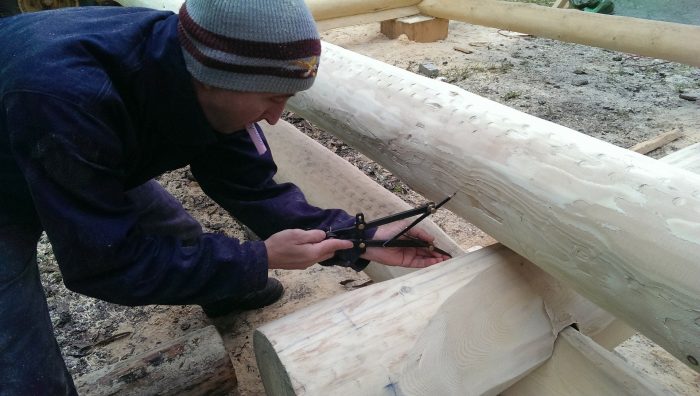It’s no secret that the largest cost to building a home is labor and that leaves many would-be homeowners wondering if they can just build one themselves. The answer to this is, yes. In most cases, you can build your own home if you want. However, the rules you must abide by vary by location.
So, Can You Legally Build Your Own House?
Believe it or not, some locations doallow you to build a tiny cabin without permits on your land! The couple in this Youtube video built this tiny cabin for somewhere around $2,500. The catch is, that the cabin is under 200 sqft, and it is not on a “permanently attached foundation”.
Similarly, there are other locations across the United States that have rules like this too. But, it can be a little difficulty to find those places since rules are typically up to the county the home is in.
However, building yourself is obviously the cheapest way to get a house per square foot, and while it’s not always cheaper to buy land and build a house, if you’re doing the work yourself – the savings are obviously huge.
In short, if you want to do this, you may need to move. And, you’re going to have to put in some serious research time to find a county that will allow you to go forward with these plans.
The cabin also does not have plumbing or electrical and only has wood heat. So, while you “can” get away with a build without permits – you’re going to have to make a lot of sacrifices to do it. So, what do you do if you want to build a real house with all the amenities yourself?
Building Your Own Home – Legal Legwork
While in, most cases, it is legal to build your home yourself – do your own research. Laws vary wildly by location and what’s fine in dandy in one locale may get you into trouble the next county over. But, to get started, here’s what you’ll need to do before you start building.
Zoning confirmation, deed restriction work, and survey
Before you start building, you’ll want to get confirmation that what you plan to build is, in fact, allowable based on the zoning of your parcel of land. You’ll also want to check that there are no pesky deed restrictions which could halt your build or limit what type of structure, the size of the structure, etc. A survey is also a good idea because it can take care of any complaints about land boundaries with neighbors before they cause problems.
Before doing anything at all, your lot needs to be approved for building. So, this is your first step.
You’re Going To Have To Be Your Own Contractor
When hiring a builder, they usually take care of knowing when and where to pull permits. If you’ll be building the house yourself – this is now your job. Unfortunately, it’s hard to give guidance here because permits need to be addressed at a local level and you’ll need to do that legwork yourself.
However, be aware that it requires a good number of inspections throughout the building process for safety. You did already check with the county and find out what needs to be done for your build to be approved in the last step, right?
Make sure to familiarize yourself with building codes before you spend a bunch of money building stuff you may need to re-do or replace when it is not up to code.
You’ll Need Plans To Submit For Permits
Unlike the people in the above video, you’ll need a permit if you’d like to build a regular sized house. That means you’ll need the approval of the local building authority and for them to do that, they need to see your plans.
The easiest way to do this is likely to purchase an existing building plan that comes with what they need. Otherwise, you’re going to have to figure out how to do all of this without prior experience.
Can You Do Your Own Plumbing and Electrical?
In many cases, the homeowner is allowed to do their own electrical work if they are going to be residing in the home themselves. But, is this a good idea? You should ask yourself honestly if you really have the knowledge and skills to pull this off safely.
You should also, again, get confirmation that this is legal where you live and consider the fact that if you plan to sell this home later it may be impossible to do so with DIY electrical work that was not done by an electrician.
As a bonus, your insurance may not be so keen to cover a house fire cause by unlicensed electrical work.
In closing, YES! There are lots of locations in the United States where you can build a house on your own land without permits, but the realities of doing so are not so black and white. Proceed with caution! You can read more about building a house on your own land here.

Bob learned about farming from his grand dad. So, the decision to leave the city and start homesteading was not a difficult transition. He now lives with his wife and two kids on their 30 acre property in Ohio.




